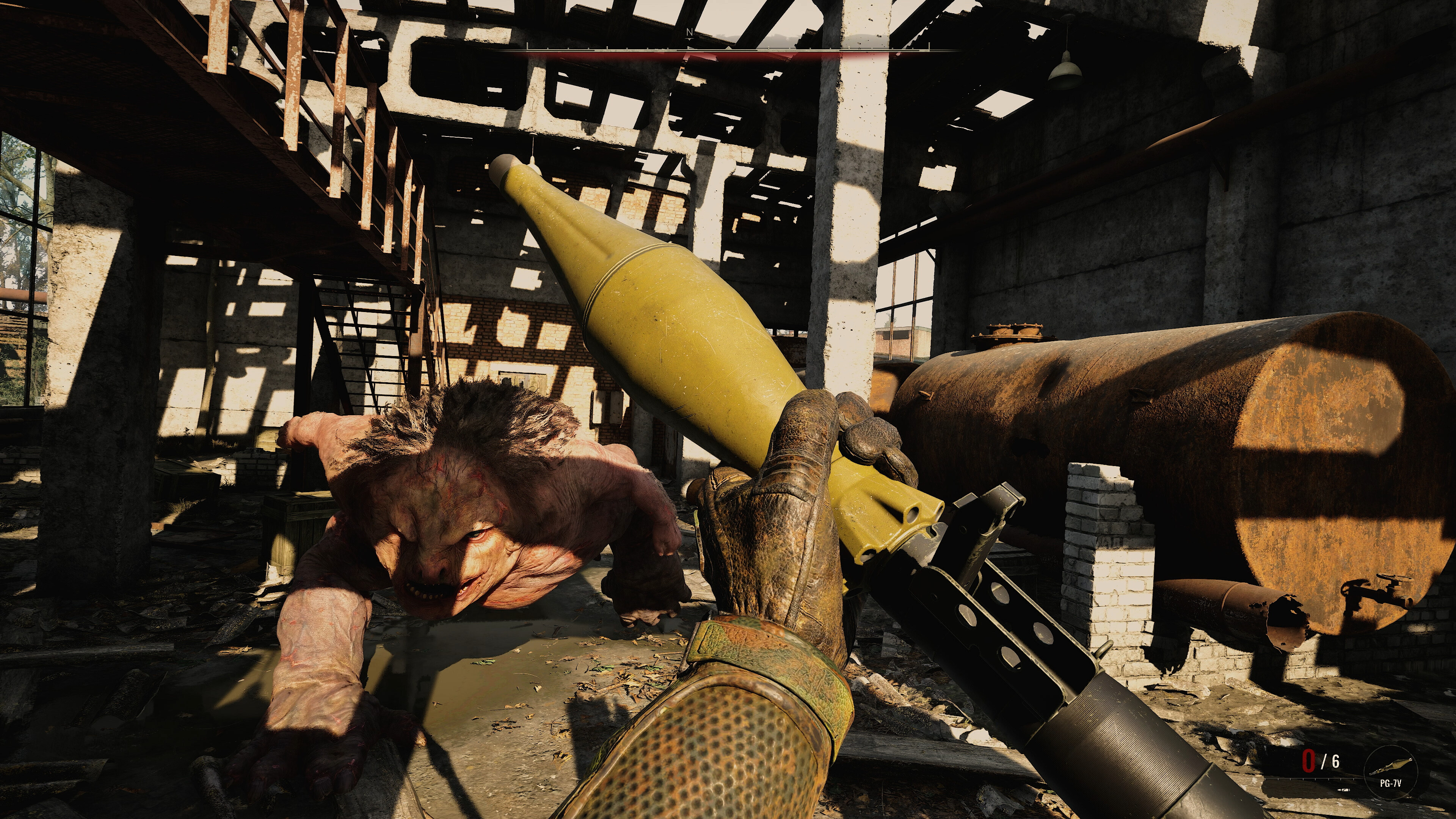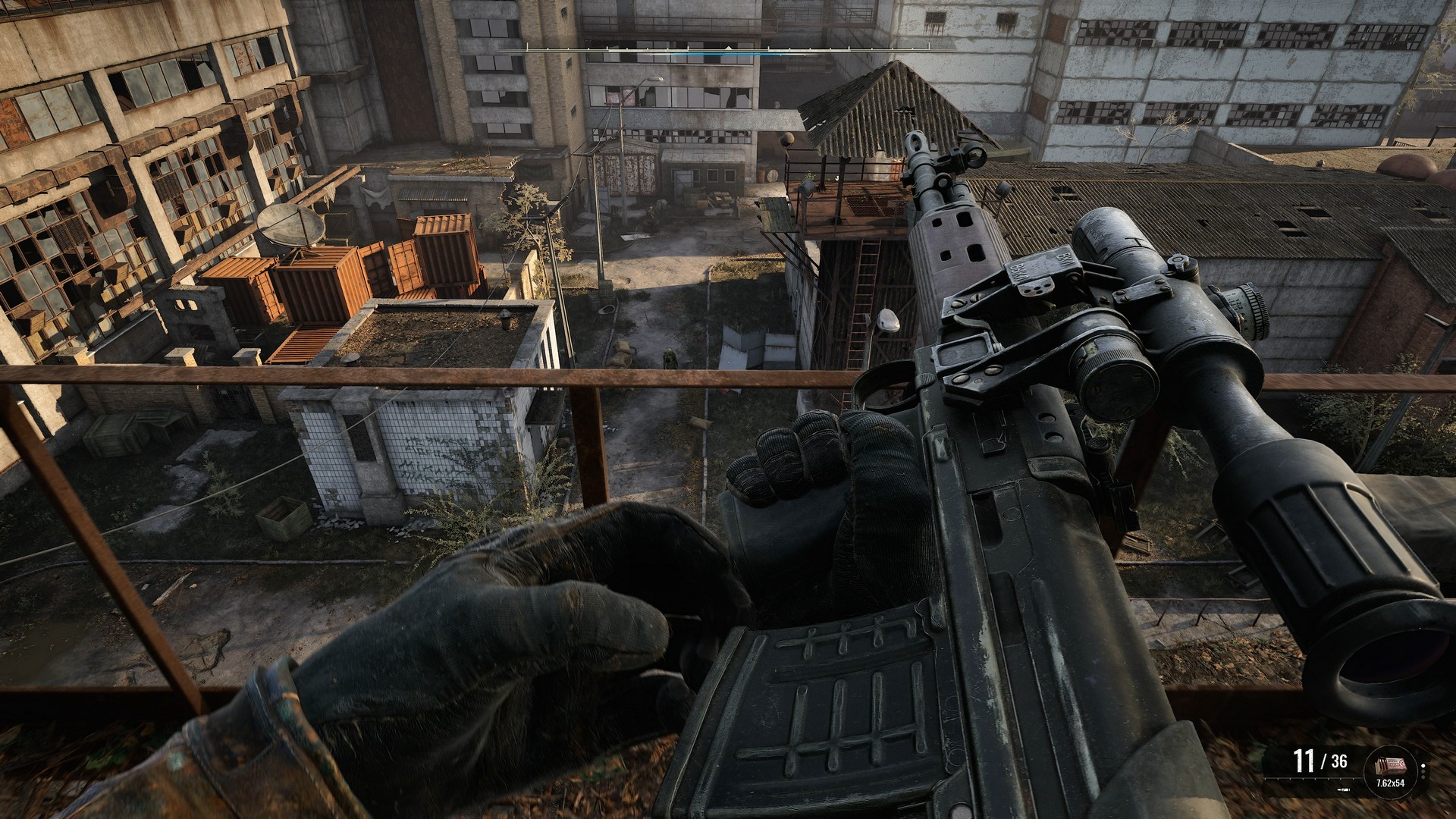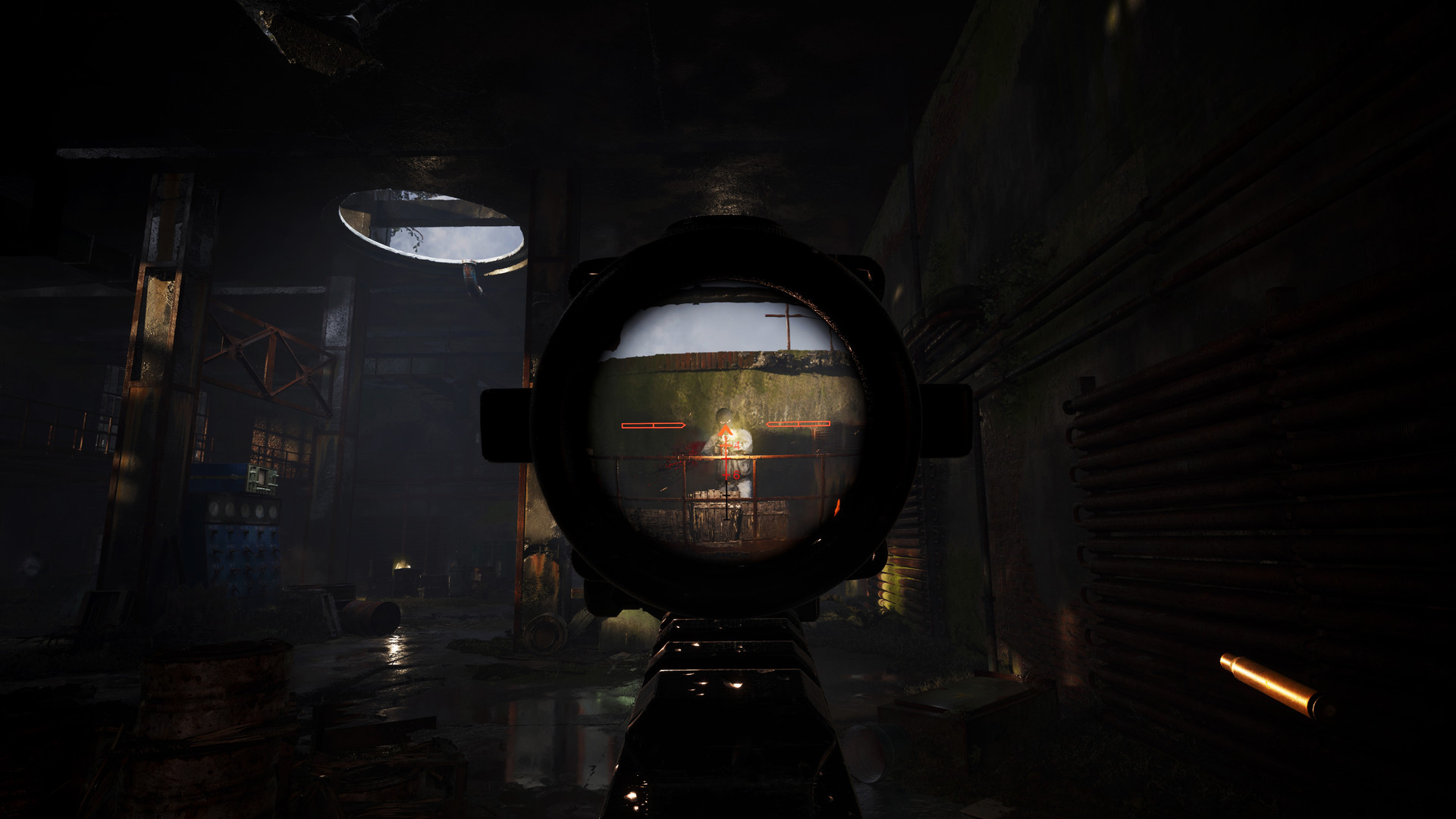
Stalker 2: Heart of Chornobyl doesn't care if you live or die. One of the more extraordinary qualities about this long-awaited sequel from developer GSC Game World is how actively hostile it is, a truly desperate crawl through a desolate, irradiated wasteland. Oftentimes it's a quiet, quite solitary affair where your only company is the low whir of a Geiger counter and the steady pulse of a beating Anomaly scanner. It can also be violently loud as winds roar under a fractured sky, carrying mutant howls and gunfire across open, abandoned plains – a world where every point of interaction wants you dead.
It's thrilling and intimidating in equal measure, which is partly why the brutal autosave system is slowly killing me – death by a thousand reloads. It isn't uncommon to succumb to the Zone multiple times in an hour, your deaths cataloged and communicated freely within the respawn menu. It isn't uncommon to find yourself trapped in a cycle of death either, the experience of reloading into the exact moment you fell to one of the many dangers which stalk the darkness a repeatable, predictable frustration. The load time – anywhere from 20 to 60 seconds on Xbox Series X – doesn't help here either.
I'm conflicted by my frustration. The fact that Stalker 2 is triggering an autosave at the most inopportune moments is actually an extension of something I really love about the game. Combat is exceptionally challenging, and I'm yet to survive an enemy encounter by anything but the skin of my teeth. Health reserves are decimated by incoming melee and ballistic damage, bleed effects are brutal, and med-kits are in as short a supply as ammunition. You can strafe, weave, and duck behind cover all you want – bullets and claws rip through flesh, and everything from a poorly-timed reload to a weapon jam to a misplaced step will kill you dead. Stalker 2 tries to reward every small, defiant act of survival with an autosave as a result – it is, perhaps, something of a patronizing pat on the back which comes far too frequently.
Saving grace?


Stalker 2: Heart of Chornobyl review: "The best but most broken game I've played all year"
Video games have always played clever tricks to make you feel more powerful or capable than you actually are. Developers rarely talk about this publicly, but oftentimes steps are implemented to imperceptibly alter the state of play. Maybe the last 5% of your health bar is actually comparable to the 15% that preceded it, perhaps a parry window extends the longer an encounter wears on – all designed to give you the sensation that you fought to overcome impossible odds. I'm pretty sure that Stalker 2 isn't engaged in such subtle ego inflation. Instead it seems to take real joy in knocking you down and pressing on as you scramble to react, the autosave functionality triggering the split-second you achieve literally anything is reflective of this.
It's this sharp edge that can make Stalker 2 so thrilling. Gunfights are breathless affairs, where the final enemy to be toppled is typically followed by frantic bandaging to prevent further blood loss. Circumventing anomalous activities is equally enthralling, where a few thrown bolts allow you to carve a path through hell and get your hands on mysterious artifacts. Such thrills have frustration as a natural byproduct. With gunfights always fought on a razor's edge it isn't uncommon for you and your aggressor to discharge their weapons at the same time, the autosave kicking in after impact but before the bodies hit the floor; same goes for the times you extend your arm to grab an anomalous prize, the autosave activating the second you are hit off-screen by some returning fracture in reality.

The trick is to not reach for the 'load last checkpoint' button as soon as you die, something I continue to do instinctively while blinded by frustration that I succumbed to the Zone once again. Practice some patience and the 'load save' option will let you rewind the clock in almost minute-by-minute increments, allowing you the chance to step back, breathe, and try again. You can also disable the autosave functionality in the menu entirely, but it's then incumbent on you to manually save frequently – and for such a vibes based open-world, you don't want to live within the web of menus.
Perhaps there is no answer here. I love that success, any success, in Stalker 2 makes me feel like king shit of the irradiated mountain. And I hate that I'm seemingly forced to relive any failure time-and-time again because the autosave functionality is intent on trapping me within death loops. It's quirks like this which make me weirdly, fondly nostalgic for the original Stalker trilogy – just as ruthless, although times have certainly changed since 2007. I suspect that an experience so outwardly hostile is going to feel like an aberration for many modern shooter fans, particularly those coming to it via Xbox Game Pass on a whim. Still, despite my frustrations, I'm coming back to the Zone for more – there is, for better or worse, nothing else quite like it around right now.
Sign up to the GamesRadar+ Newsletter
Weekly digests, tales from the communities you love, and more
Looking for a more relaxing shooter? Here are the best FPS games you can play alongside Stalker 2

Josh West is the Editor-in-Chief of GamesRadar+. He has over 15 years experience in online and print journalism, and holds a BA (Hons) in Journalism and Feature Writing. Prior to starting his current position, Josh has served as GR+'s Features Editor and Deputy Editor of games™ magazine, and has freelanced for numerous publications including 3D Artist, Edge magazine, iCreate, Metal Hammer, Play, Retro Gamer, and SFX. Additionally, he has appeared on the BBC and ITV to provide expert comment, written for Scholastic books, edited a book for Hachette, and worked as the Assistant Producer of the Future Games Show. In his spare time, Josh likes to play bass guitar and video games. Years ago, he was in a few movies and TV shows that you've definitely seen but will never be able to spot him in.


